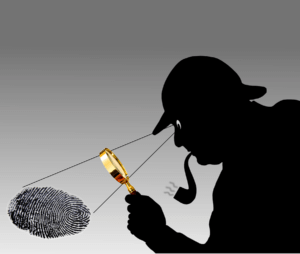Three Personality Types of Sherlock Holmes: A Comparative Analysis

Sherlock Holmes has had many faces in media, resulting in multiple different personality types. I know that may seem odd. After all, if every rendition is based on the same character, how could his personality vary? Well, each recreation has had its own unique flavor, rather than being an exact replica. Even the actors themselves seem to influence the character, whether due to their acting, them being chosen for the role, or the role being written for them. Either way, the result is Sherlock Holmes being portrayed as multiple different personality types.
In this article, my goal is to compare the two most recent iterations of Sherlock Holmes (BBC’s Sherlock Holmes and Robert Downey Jr’s Sherlock Holmes) to each other and the original book version as written by Sir Arthur Conan Doyle. I intend to call out some major distinctions between the three Sherlock Holmes, where they parallel, and what it all indicates for their personality types. However, since I’m comparing three different characters, I can only discuss so much before this article turns into a ridiculously huge wall of text. Therefore, I’m going to strive to keep it fairly brief and succinct. If you wish to read more about any particular version of Sherlock Holmes, we have written individual analyses on all three. You can find them here: Sherlock (BBC): Sherlock Holmes (ENTJ), Sherlock Holmes (RDJ) Series: Sherlock Holmes (ENTP), and Sherlock (novel): Sherlock Holmes (ISTP).
High Level Overviews
It’s always useful to look at each character from a high level perspective. I’m going to do that here in the form of a bulleted list, calling out any major similarities or differences that I noticed between each Sherlock Holmes and what it might mean for their personality types. I’ll start into more nuanced comparisons in later sections.
- The BBC and RDJ versions of Sherlock Holmes are both impulsive and even chaotic. This can suggest either a perceiver or an extraverted dominant. In contrast, the book version is much more calculated and controlled, which suggests an introverted dominant.
- All three devalue emotions, which suggests that they are thinkers.
- The BBC and RDJ versions of Sherlock Holmes both act needy, just in different ways. RDJ uses tertiary Fe to emotionally manipulate Watson, while BBC constantly gives him orders or makes physical demands (Te), no matter how inconvenient. In comparison, the book version doesn’t attempt to control Watson, and remains independent and fully self-reliant.
- The BBC and Book versions of Sherlock Holmes share an intense focus on their singular interest (Se/Ni). RDJ’s Sherlock is much more scattered in his interests, leading to a wider range of experimentation (Ne/Si).
- The BBC version of Sherlock is by far the most blunt, whereas RDJ mocks incessantly with his wit. The book version is candid and prone to sarcasm, but generally polite.
- The BBC and Book versions of Sherlock Holmes treat their ability to observe details as a conscious, cultivated skill, while the RDJ version seems overwhelmed by it, at times, even referring to it as a curse (inferior Si).
- The BBC version of Sherlock admits to making assumptions and guesses. For instance, after deducing a lot about Watson shortly after they meet, he states that the didn’t expect to be right about everything, and even calls some of the “guesses” a shot in the dark. The book version of Sherlock does not do this, rather preferring to “have clearer proofs” before he speaks. He does not view any of his deductions as guesswork. This suggests higher intuition for BBC’s Sherlock, and lower intuition for book Sherlock.
Meeting Sherlock Holmes: Roommate Interview
Since RDJ’s Sherlock already had a well-established relationship with Watson at the start of the movie, this section will focus on the BBC and book versions.
As someone who saw the BBC show first, the stark difference in the book version of this scene struck me. In the BBC version, Sherlock Holmes initially presents as brusque, condescending, and disinterested in Watson. After their introduction, he almost immediately starts sharing his shortcomings with Watson, because he has already assumed (or predicted) the reason for Watson’s presence. He acts unapologetically in a hurry, initially tries to ignore Watson’s questions, and claims that he needs to know nothing about Watson specifically. He tells Watson when and where to meet him without even bothering to confirm that Watson’s in agreement.
Book Sherlock greets his friend and Watson cordially. He even seems excited that they are there, and immediately begins sharing his recent scientific discoveries with Watson. He doesn’t switch into “business mode” until a little while later, when his friend admits that they had come on business. Unlike BBC, he never “predicts” that Watson was there about getting a place with him, nor does he seem disinterested in Watson’s presence.
As the scene progresses in the book, Sherlock does switch into business mode, but he still remains extremely pleasant, excited that he might have finally found a roommate. He quickly shares his shortcomings and requests that Watson do the same. He even acts nervous when admitting to his violin playing, worried that Watson might find it annoying. After this brief exchange of information, they settle on a time to see the place, and then Watson leaves.
Notable Points and Potential Personality Type Takeaways for each Sherlock Holmes:
- Book Sherlock comes off like a perceiver: laid-back, excitable, and energetic. He shares what he’s currently doing with Watson, and doesn’t go into business mode until prompted by an outside force (the friend).
- BBC Sherlock comes off like a Te user (or TJ): curt and goal-oriented. As a result, he not only acts rude and impatient, but assumes Watson has agreed to be his roommate. There’s a complete lack of Fe here, in any placement.
- Book Sherlock, once in business mode, is brief and succinct, but careful to verify Watson’s approval, even to the point of acting anxious that he might say no. He makes no prejudgments or assumptions about Watson’s decision, nor does try to coerce him into making a specific decision. This is more characteristic of an introvert with Fe.
Relationship with Information
Here, there is a clear distinction to be made between RDJ’s version of Sherlock and the other two. See, the book version of Sherlock Holmes relates a man’s brain to a small attic. I could explain it, but I think I’ll actually copy in the full quote below and go from there.
That very last sentence demonstrates the basic, over simplified idea. Original Sherlock Holmes is a specialist, who ensures every piece of information that he intakes is relevant to his work. If it’s not, he makes a conscious effort to forget it, which is something that he verbally states. As a result, he knows a lot about anything that’s relevant to his field, and next to nothing about other subjects, such as philosophy, astronomy, literature, and politics. This shocks Watson incredibly.
The BBC version of Sherlock expresses a nearly identical sentiment, only modernized.

Notable Points and Potential Personality Type Takeaways for each Sherlock Holmes:
- The wide range of experiments (and thus accumulation of a wider range of knowlege) points to RDJ’s Sherlock being on the Ne/Si axis (NPs or SJs). Those on this axis often gather information more indiscriminately, due to scattered interests, exploring new ideas and theories as they happen across them, or absorbing information just in case it’ll be useful one day. I have often seen NPs complain about having a lot of useless knowledge.
- The focus on relevancy and specialization in BBC’s Sherlock and the book version of Sherlock speaks to the Se/Ni axis (SPs or NJs). Those on this axis are more dismissive of information that they don’t see a value in knowing. They naturally have a much narrower focus.
Temperament and Interpersonal Skills
The BBC and RDJ versions are narcissistic. It’s a shame, really, because the book version of Sherlock is not this way. He’s polite and socially competent, albeit candid in regards to his opinions and deductions. He will fake politeness, and present himself as friendly and amiable to get what he wants. When he’s blunt, it’s usually a byproduct of stating objective facts and logic, rather than being aggressive. On the occasion that he’s irritated, he defaults to sarcasm or half-hidden insults. He typically doesn’t insert himself into cases, even when he’s interested in them. Instead, he waits for an invitation. Lastly, he views emotions as an opposition to reason, and thus something to divorce himself from.
The RDJ version relies on wit and sarcasm. In addition, he’s often petty, condescending, and argumentative. At times, he’ll spin a hypothetical scenario and use the logic within it against the person he’s arguing with. Generally, he puts on a basic air of social decorum in public, but doesn’t hesitate to drop the act. He enjoys playing games with the police, to trick them into getting out of his way. He’s also prone to using emotional manipulation, especially in regards to Watson.
The BBC version is a self-proclaimed sociopath. In spite of possessing a genius level intellect, he’s stupid in regards to people and their feelings. As a result, he comes off extremely insensitive and dismissive of others. He isn’t emotionally manipulative, due to being completely disconnected from emotional data. This version of Sherlock is childishly bull-headed. (For instance, he refuses to get dressed when Mycroft forces him to visit a potential client.) He also openly inserts himself into cases, and makes demands of the police. The “Wrong!” text that he sends out in the first episode is a good example. In addition, he blatantly tells people to shut up, or insults them to their face.
Notable Points and Potential Personality Type Takeaways for each Sherlock Holmes:
- The complete disconnect from emotional data in BBC’s Sherlock points to inferior feeling. His lack of awareness of the emotional environment, in addition to the fact that he doesn’t seem to make any effort to adjust himself to it, indicates that the inferior feeling function is Fi not Fe. He seems to only be aware of himself.
- BBC Sherlock’s bull-headed, blunt, and demanding nature is more typical of dominant Te (with underdeveloped inferior Fi) than dominant Ti. His refusal to get dressed in the example I gave demonstrates his refusal to give up control of the situation (Te) and a general lack of Fe (due to the fact that he’d rather show up naked, wrapped only in a sheet, then go with the flow and yield control.)
- RDJ’s Sherlock relies on his feeling function too much to be an inferior feeler. His form of manipulation is characteristic of tertiary Fe.
- RDJ’s Sherlock displays a classic Ti/Fe + Ne style of arguing, via weaponizing logic within a hypothetical scenario
- Book Sherlock’s dealings with people are characteristic of low Fe. His own feelings seem pretty mute overall, typically not expressed or focused on beyond his basic friendly nature.
Relationship with Watson
Book Sherlock’s relationship with Watson is friendly in nature and not at all overbearing. He doesn’t typically drag Watson into cases, or make demands of him. (He enjoys Watson’s companionship, and thus invites him to come along.) This Sherlock is fully autonomous, and often keeps to himself. Watson describes him like this:“Holmes was certainly not a difficult man to live with. He was quiet in his ways, and his habits were regular.”
When Watson gets engaged, Sherlock reflexively expresses general disappointment followed by his opinion, but then moves on without any denial, drama, or disruption.
The BBC and RDJ versions are quite different in this regard.
The RDJ version is not easy to live with, between the experimentation and inventions. (The failed gun silencer comes to mind.) He’s also needy and childish. Watson periodically feels the need to step in to help him, to keep him from accidentally killing himself or detaching from reality for too long. When Watson gets engaged, Sherlock is avidly against it, not wanting to lose Watson, although he expresses this mostly through avoidance and social manipulation. When he’s finally forced to meet the fiancee, Sherlock attempts to under cut Watson, and generally be divisive. He’s extremely selfish, and actively goes against Watson’s wishes to not get involved in cases, to the extent that he thwarts Watson’s bachelor’s party and honeymoon.
BBC’s Sherlock bosses Watson around right from the git go, often inconveniencing him unnecessarily. When Watson gets arrested while they’re meeting Sherlock’s “paint expert”, Sherlock doesn’t care and barely registers the incident. The moment Watson gets home, Sherlock goes right back to issuing him orders. Sherlock has no respect for personal property, or boundaries. (For instance, he hacks Watson’s laptop simply to avoid going into the next room to get his own.) Similar to RDJ’s version, BBC’s Sherlock tricks Watson into investigations, but it’s physical in nature, like giving Watson and his girlfriend reservations to a suspect’s show. In regards to Watson’s wedding, this Sherlock claims that there’s nothing special about it, and that nothing will change afterwards.
Notable Points and Potential Personality Type Takeaways for each Sherlock Holmes:
- RDJ’s Sherlock displays inferior Si, in the way he detaches from reality.
- Both the BBC and RDJ versions of Sherlock display a form of denial in regards to Watson’s wedding.
- RDJ’s denial indicates an SFJ shadow state, as he falls down into his lower Si and Fe, refusing to accept that the wedding is going to happen, refusing to let Watson go, and employing social manipulation in an attempt to be divisive.
- BBC’s denial centers around his failure to understand people and relationships, which points back to his underdeveloped, inferior feeling function.
- BBC’s Sherlock utilizes Watson (and everything he owns) as a resource from day one, regardless of Watson’s wishes or feelings. This is more characteristic of dominant Te, taking control of the physical environment. (As inferior extraverted judgers, IXTPs find controlling others to be tiresome, so they are less inclined to do it, and will give up easier if they receive push back.)
- Book Sherlock acts in a fully independent and autonomous way. He keeps to himself and does not attempt to rely on or control Watson. This is characteristic of dominant Ti.
Hi there, reader! If you enjoyed that article, leave us a quick comment to encourage us to keep writing. In addition, if you've found our content helpful in some way, please consider Buying Us A Coffee to support our efforts and help keep this website running. Thank you!





Quite possibly the best post y’all have written—this was fascinating! Strong analysis, Mara, and I tend to agree with it. I understand this type of content may be tough to continue on with, or reproduce, but this really helpful in understanding how type plays out across the same character and where to look for the leverage points for a strong type analysis.
Thank you! I’d love to do more, if I ever get another idea for one. Although, it is a lot of work because of the all the information to juggle.
I love this analysis! It’s unlike anything you’ve done before, it gets on the nitpicky details.. it’s so cool how you went deep into all this — I always want to see you improve your fictional character typing skills because this is post is the epitome of what you and your website could become if you give it your all and bring out some of that untapped potential more into your site.
I LOVED THIS. I really like this character so yeah. I would really like that you see the Granada version of Sherlock Holmes but I think he is straight up faithful to the books, analyzing the books and Granada are the same thing. But if you want to see the definitive Sherlock Holmes, Jeremy Brett is the one.